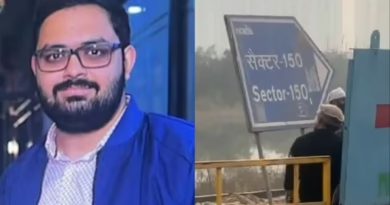Editors Guild Raises Alarm Over Court Order, Government Takedown Notices on Adani-Related Content
A recent Delhi court order and subsequent government action directing the removal of online content related to Adani Enterprises Limited (AEL) have sparked strong criticism from journalists, digital creators, and the Editors Guild of India (EGI), who fear it sets a troubling precedent for free speech and press freedom.
The controversy began after a Delhi court restrained nine journalists, activists, and media entities from publishing or circulating what it described as “unverified, unsubstantiated, and ex facie defamatory” material against AEL. The order mandated that such content be removed within five days.
However, the ruling went a step further. It empowered the corporate entity to continuously flag URLs and links it deemed defamatory to intermediaries or government agencies, who would then be legally bound to ensure takedown within just 36 hours.
The Editors Guild, in a strongly worded statement, called this aspect of the order “deeply disturbing.” It argued that allowing a private company to unilaterally decide what qualifies as defamatory content, and obliging platforms and government bodies to act accordingly, risked turning corporate interests into censorship authorities.
Adding to the concern, the Ministry of Information and Broadcasting (MIB) issued takedown directives to social media giants.
According to reports, over 138 YouTube links and 83 Instagram posts have already been removed under government instructions following the court’s order.
The Guild described this ministerial intervention as “equally troubling,” warning that it marked an extension of executive power into editorial spaces.
This extension of executive power has effectively given a private corporation powers to determine what constitutes defamatory content regarding their affairs, which extends the power to order content takedown,” the Guild said.
Stressing that a “free and fearless press is indispensable to democracy,” the Editors Guild noted that such measures could silence critical or uncomfortable voices, undermining the public’s fundamental right to information.
Independent journalists and creators echoed the sentiment. Satirist Akash Banerjee, known for his popular YouTube channel Deshbhakt, revealed that he and several other independent creators were served notices to remove more than 200 pieces of content within 36 hours—without being given any opportunity to contest or defend their work.
For many in India’s media and digital community, this episode is seen as a test case for the balance between protecting corporate reputation and safeguarding press freedom.
Critics fear that if such practices continue, they could pave the way for unchecked censorship, with private entities effectively dictating the limits of public discourse.
#PressFreedom #EditorsGuild #Adani #CensorshipConcerns #FreedomOfExpression #MediaRights #YouTube #DigitalCensorship #JournalismUnderThreat #RightToKnow




